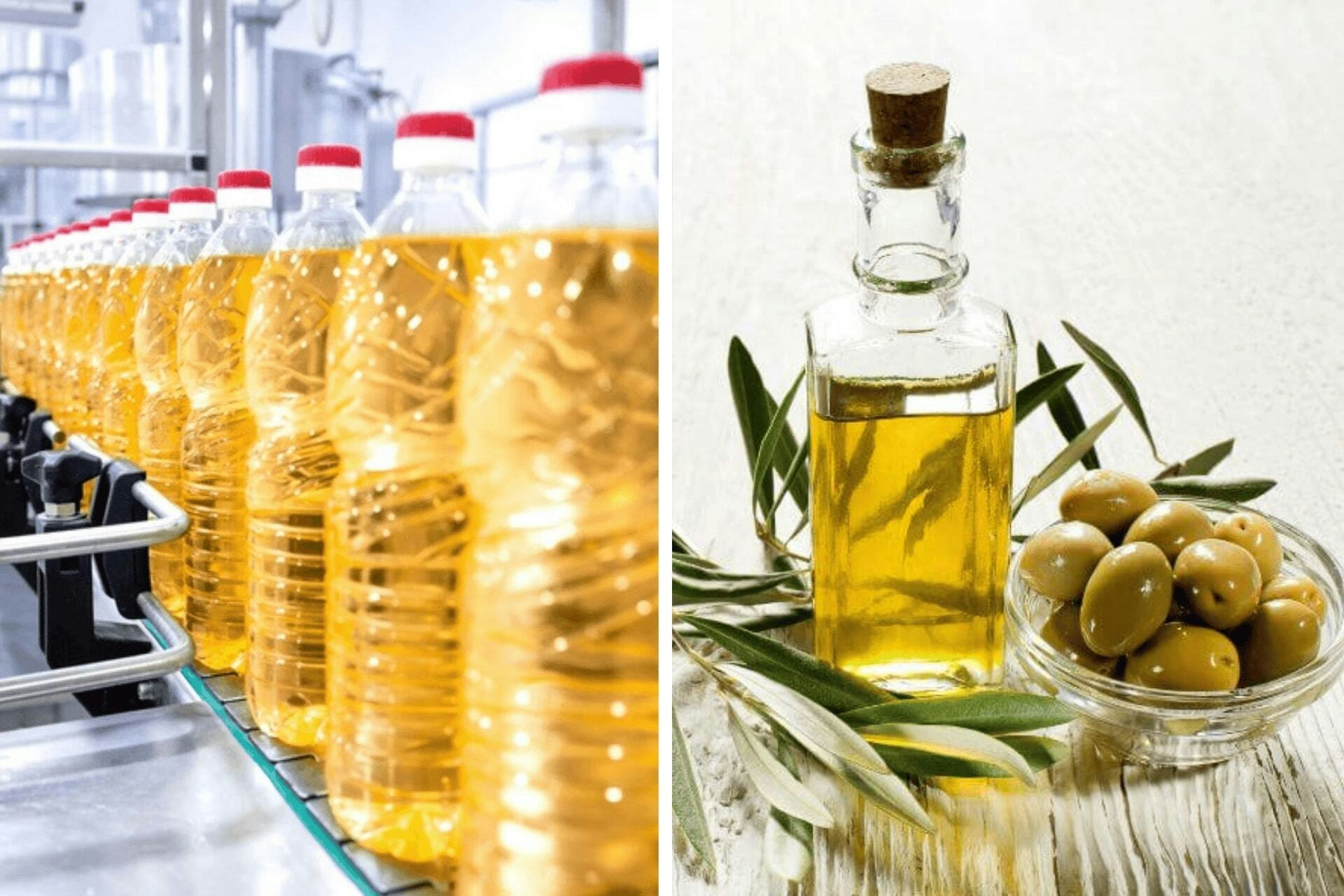Coconut oil has earned its place as a kitchen staple due to its rich texture and health benefits, such as its medium-chain triglycerides (MCTs) that provide quick energy. It’s favored for everything from frying and baking to being used in skincare and hair care.
However, there are a few reasons why someone might seek an alternative. Whether it's for a more neutral flavor, dietary restrictions, or a higher smoke point for high-heat cooking, finding a suitable substitute is essential.
In this article, we’ll dive into an overview of coconut oil, why algae cooking oil is an excellent substitute, and other options you might want to try.
What is Coconut Oil?
Coconut oil is an edible oil derived from the kernel or meat of mature coconuts. It is widely used in tropical regions and can handle a variety of culinary applications, including frying, sautéing, baking, and even as a substitute for butter or other oils.
There are two types of coconut oil used in cooking: refined and virgin. Refined coconut oil is processed to remove impurities, which gives it a neutral flavor and a high smoke point. On the other hand, virgin coconut oil is minimally processed and retains a light, natural coconut flavor.
What’s the Best Substitute for Coconut Oil?
The best substitute for coconut oil is a cooking oil with a neutral flavor and a high smoke point, which would make it suitable for both baking and high-temperature cooking methods.
Algae cooking oil is an excellent alternative to coconut oil because it has a neutral taste and a remarkably high smoke point of 535°F, which makes it versatile for a wide range of cooking methods. Algae cooking oil is also known for its health benefits, including a high content of heart-healthy monounsaturated fats, particularly omega-9 ❶.
What Makes Algae Cooking Oil the Best Coconut Oil Substitute?
If you’re looking for a substitute for coconut oil, algae cooking oil is worth considering. Its combination of health benefits and high performance in the kitchen makes it a wonderful choice for various cooking needs. Here’s a closer look at why it stands out.
Neutral Flavor
Algae cooking oil has a mild, neutral flavor with a hint of butteriness. Unlike coconut oils that can add strong flavors, algae oil lets the natural taste of your ingredients shine through.
This makes algae cooking oil ideal for dishes like chocolate chip cookies, banana bread, stir-fried vegetables, or creamy pasta sauces. Its subtle flavor blends seamlessly into savory recipes like salad dressings or marinades without overpowering the dish.
Related: Neutral Cooking Oil: Everything You Need to Know
Highest smoke point
One of the standout qualities of algae cooking oil is its exceptionally high smoke point of 535°F, which is about 125°F higher than extra virgin olive oil (EVOO). This means algae oil can handle very high cooking temperatures without breaking down into harmful compounds, such as free radicals which can affect the flavor and safety of your food.
Thanks to its high heat tolerance — algae cooking oil is ideal for frying, stir-frying, grilling, and roasting — so it stays stable and reliable for all your heat-intensive recipes.
Related: What are High Heat Cooking Oils?
Rich in Omega-9 fatty acids
Algae cooking oil is packed with Omega-9 fatty acids, which are a type of heart-healthy monounsaturated fat. These fats are known to help improve cholesterol levels by increasing good HDL cholesterol.
Omega-9s also have anti-inflammatory properties, which can help reduce inflammation in the body. Chronic inflammation has been associated with conditions such as heart disease, arthritis, diabetes, and even certain cancers ❷.
By choosing algae cooking oil, you not only get a functional cooking oil but also a nutritious option that contributes to a balanced diet.
Related: Choosing Healthy Fats
Extra versatile
Algae cooking oil’s combination of a neutral flavor, high smoke point, and health benefits makes it extremely versatile. It can be used in a wide variety of culinary applications, from high-heat frying and grilling to low-temperature uses like dressings and dips.
This adaptability allows you to use algae cooking oil in a wide range of recipes, so it’s a nutritious choice for everyday cooking and a practical substitute for coconut oil in nearly any recipe.
Other Coconut Oil Substitutes
While algae cooking oil is a great replacement for coconut oil, several other options may meet your cooking needs and flavor preferences:
It's important to note that grapeseed oil, sunflower oil, and some vegetable oils are seed oils high in omega-6 fatty acids. Excessive omega-6 intake can disrupt the balance with omega-3s and may contribute to inflammation ❸. For those concerned about omega-6 intake, algae cooking oil and olive oil offer healthier fat profiles as alternatives.
The Bottom Line
There are plenty of options available to substitute coconut oil, but the best would be algae cooking oil. While oils like olive, avocado, and butter work well in certain recipes, they may lack the versatility and well-rounded benefits that algae oil brings to the table.
We encourage you to try Algae Cooking Club’s chef-grade algae cooking oil. It’s one of those rare ingredients that checks all the boxes: enhancing the taste of your food, delivering the highest quality standards, and supporting a more sustainable planet.




